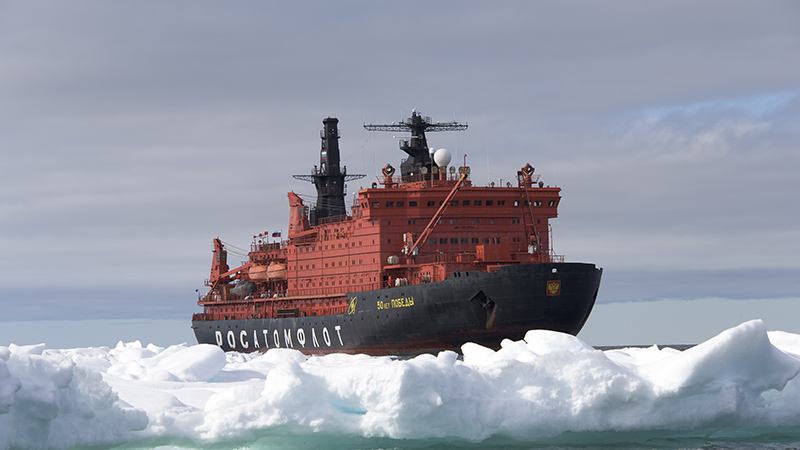Russian military expansion in the Arctic as a result of the melting ice-cap is a potential threat to the UK, a Parliamentary inquiry has concluded.
Moscow has invested millions of dollars in two ice-breakers and new military bases MPs heard, with new nuclear submarines also likely to join its Northern Fleet.
“The melting Arctic ice-cap may have significant defence and security implications for neighbouring states,” said the Defence Committee report, which was published on 5 July.
“The receding ice-cap offers significant mining and economic opportunities (the Arctic is rich in oil and gas) which are likely to incite widespread interest, notably from Russia.”
The inquiry heard experts warn Moscow plans to extract significant fossil fuel and mineral resources from the Arctic from 2020, seeing it as its “primary base for natural resources”.
“At present, the Arctic is not a militarised zone, but increasing tensions leave the future uncertain,” the report added.
“Given the increasing Russian military presence in the Arctic, we shall return to this region in a separate inquiry later this year.”
MPs said they want the government to deliver an assessment of the military implications of Russia’s actions this year.
Rising global land and ocean temperatures have caused significant melt in the Arctic, with sea ice levels projected to fall as warming increases.
The September annual sea ice minimum is now frequently below 5 million square kilometres, don from a previous average of 7.5 million square kilometres. In 2012 the figure fell to 3.6m sq km.
